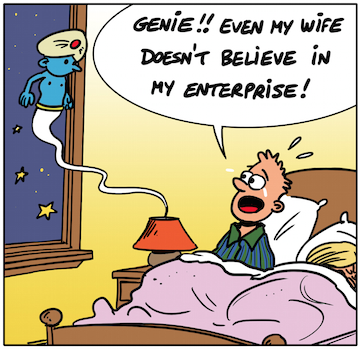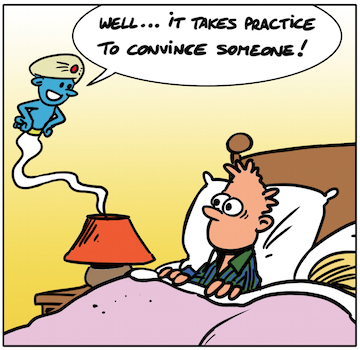-
We need to permanently convince people
The ability to convince is fundamental: it is not enough to be right, we need the support of others.
Some people are naturally more gifted than others when it comes to convincing someone. But we can improve through training, something that business schools have been doing for ever.
There are two main approaches:
- "Manipulative" Negotiation: we use every trick and manipulation to end up succeeding. For example, we use the "recurrent yes" method (to make you say yes several times on obvious or minor points to then obtain yes on something important).
- Reasoned Negotiation: we apply a certain ethic
and seek an agreement that optimizes the sum of both
parties' values. This approach leads to a more sustainable
agreement because both parties accept the basics of it. It
is not an agreement obtained through cunning that one of
the parties may later feel frustrated about.
-
How do we convince someone using reasoned negotiation?
The first remark is that we are more likely to convince someone if we believe in it ourselves: if we have strong beliefs, they will naturally show through and are the best asset for getting someone to adhere. The Vision does not only call upon reason, it can also arouse passion or emotion.
The methods revolve around the same principles:
- Identify who needs convincing
- Everything starts from the motivations of the person to be convinced: adapt what you say and build your arguments based on these motivations.
- Do not over-argue: look for the main arguments and forget about the others
- Keep it simple
- A standard presentation plan when looking to convince
someone:
-
- Look for the underlying motivations of each party: what Value are they looking for, how can they be assessed according to importance?
- Validate the motivations of those that we would like to convince
- Explain the target that answers these motivations: show proof
- Show the pathway to get there
- Summarize the advantages
- Try to get an immediate agreement or, at worst, fix a next step
- Be gentle with the person, be tough on the ideas
One rule is surprising; it is easier to create a value differential if there are diverging interests than if the interests are identical. We therefore build options to satisfy the main interests, financing them through concessions on the less important interests.
We also need to define the BATNA (Best Alternative To Negotiate Agreement): what should we do if agreement fails?
An agreement is theoretically satisfactory if it passes above each BATNA. It is of course vital to discover the BATNA of the other person because we have to offer them more to get his/her decision. The BATNA must be kept secret and never divulged, as, if it is bad, you will have no more chances to gain satisfaction and if it is very good, it can lead to a break or an official attack to devalue it and cause you to have doubts!

The story of George the Baker is made available under the terms of the
Creative Commons Attribution - NoDerivatives 4.0 International license.



